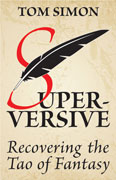Review: The Silmarillion, by J. R. R. Tolkien
This review is included in the collection Writing Down the Dragon.
The fantasy boom of 1977 would never have happened without The Lord of the Rings to blaze the trail, and it probably would not have happened at that time but for the fever of anticipation for The Silmarillion. When that book finally appeared, four years after its author’s death and forty years after it was first offered to a publisher, legions of fans rushed out to buy it, and thousands of them never finished it. I cannot think of any other instance in which an author engendered such high expectations for his next book, and produced a book so wildly incongruous with those expectations. It was as if a stadium full of people had come to see a football match, and were treated to an ice ballet instead. [Read more…]








Recent Comments